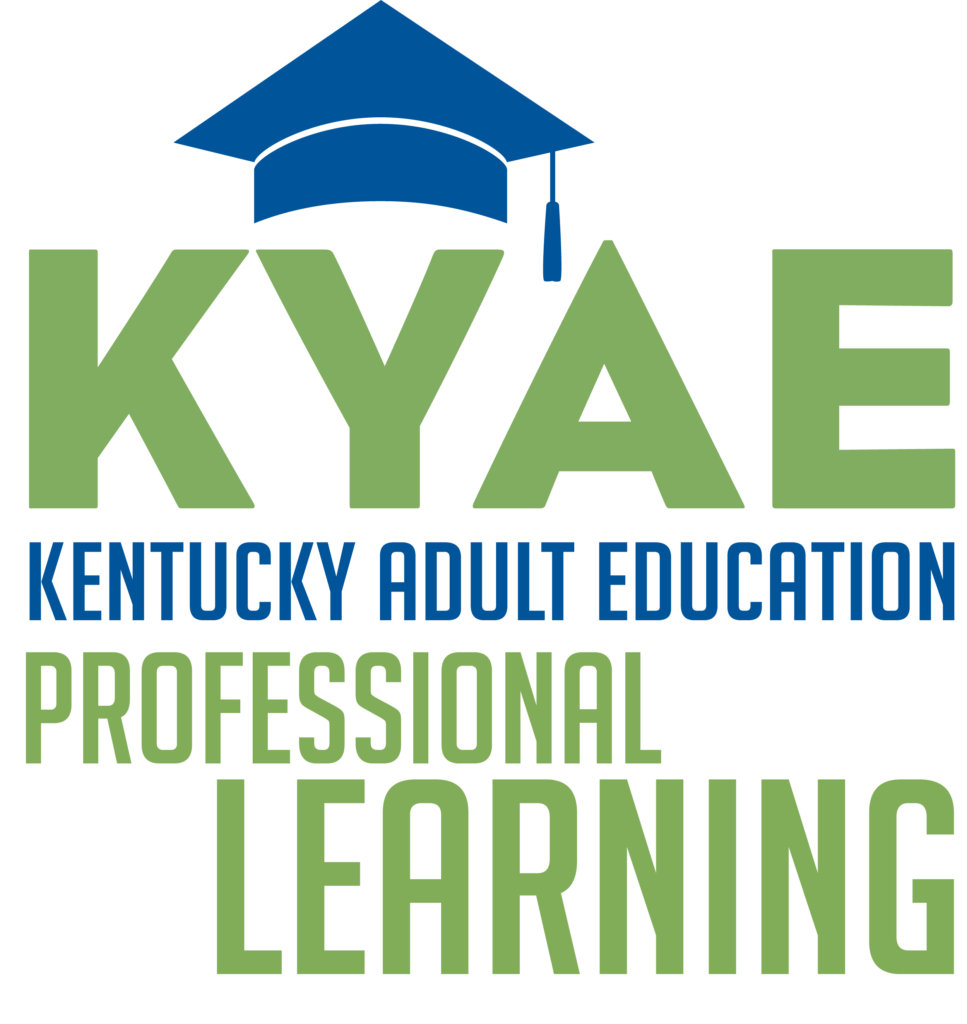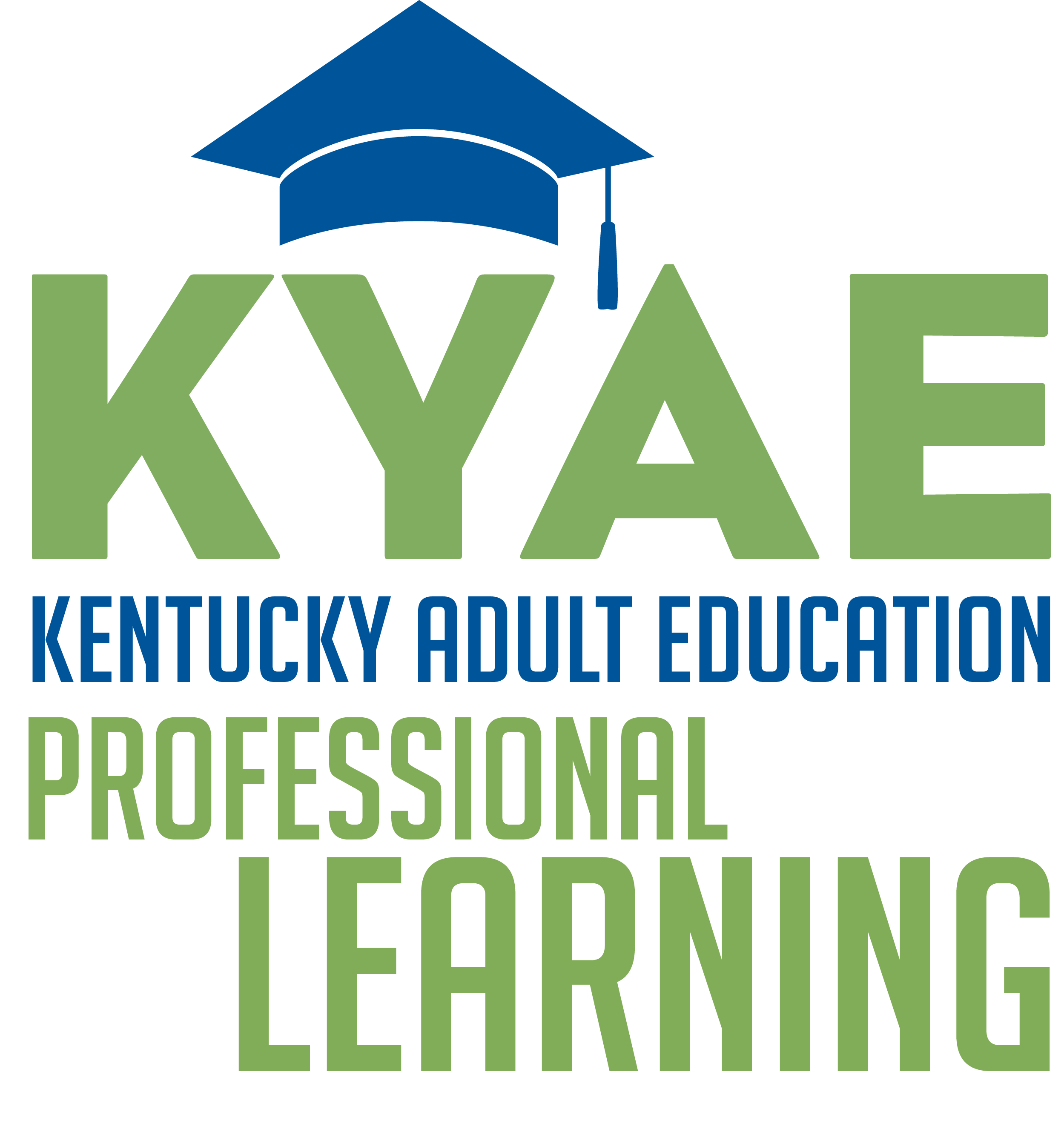Kentucky Adult Education, in conjunction with the Morehead State University Adult Education Academy, is pleased to present the Kentucky Adult Education Instructional Framework Series. This series was designed to provide a common instructional foundation for all of Kentucky’s adult education providers. Local adult educators (who intuitively aligned instruction with college and career readiness standards, student assessment criteria, and program performance metrics) provided the impetus for this project. (In an effort to acknowledge those who inspired this work, contributions of individual Kentucky Adult Educators are signified with a pink highlight throughout the entire framework series.)
Building upon the work done by local providers, a state-level team designed the Kentucky Adult Education Instructional Framework Series to align all instruction statewide with the LINCS Professional Development Center State Leadership Self-Assessment Tool, the LINCS Adult Education Teacher Competencies, the Data Recognition Corporation TABE 11/12 Blueprints, the English Language Proficiency Standards for Adult Education, and the GED® Testing Service High Impact Indicators (HIIs). The result is a five-framework series comprised of:
- The Student Persistence/Retention Framework – Research and strategies targeted to adult student retention and persistence, aligned with LINCS AE Teacher Competencies
- The Mathematics Instructional Framework – Instructional resources aligned with TABE 11/12 levels and GED® HIIs
- The Reasoning Through Language Arts Instructional Framework – Instructional resources aligned with TABE 11/12 levels and GED® HIIs
- The Instructional Technology Framework – Instructional resources, accompanied by detailed screenshot and video tutorials, aligned with LINCS AE Teacher Competencies
- The English Language Proficiency Instructional Framework – Instructional resources aligned with English Language Proficiency Standards and CASAS Competencies, organized both by ELP Standard and by five achievement levels, featuring resources from BurlingtonEnglish®.
Adult education students often face barriers that, if left unaddressed, can impede their ability to persist and succeed. Helping students build persistence is possible – but it requires mindfulness and effort from all staff members, from the person who answers the phone to the person who provides instruction – and all contacts in between. The correlation of this framework’s resources to LINCS Adult Education Teacher Competencies helps connect the dots between student persistence and best instructional and program administration practices, thus ensuring that persistence efforts are seamlessly blended into the everyday operations, instruction and culture of local KYAE programs.
The Student Persistence/Retention Framework is an index of the resources (programmatic materials, instructional examples, and supporting research and readings) cited in the framework and their corresponding LINCS Adult Education Teacher Competencies.
In anticipation of the move from TABE 9/10 to TABE 11/12 and in conjunction with the Morehead State Adult Education Academy, KYAE sought to support Kentucky adult educators with comprehensive, assessment-aligned resources to aid the transition to that more rigorous test. The result is the Instructional Framework Series.
Organized according to the TABE Test Blueprints from DRC, resources are prioritized according to High, Medium, and Low emphasis of tested College and Career Ready Standards.
In anticipation of the move from TABE 9/10 to TABE 11/12 and in conjunction with the Morehead State Adult Education Academy, KYAE sought to support Kentucky adult educators with comprehensive, assessment-aligned resources to aid the transition to that more rigorous test. The result is the Instructional Framework Series.
Organized according to the TABE Test Blueprints from DRC, resources are prioritized according to High, Medium, and Low emphasis of tested College and Career Ready Standards.
This framework for Instructional Technology is intended to be a living document, open to feedback from instructors; therefore, enhancements suggested from instructors in the field may be added. Color-coding in this framework correlates to the Learner Persistence Program Self-Evaluation, while the resources themselves are aligned to pertinent LINCS Adult Education Teacher Competencies.
The examples of Instructional Technology described in the framework are meant to supplement instruction, not to replace it. Sound instruction is designed around learning objectives, and integration of the technology tools contextualizes instruction to increase the digital literacy needed for both college and career success.

Kentucky Adult Education, in conjunction with the Morehead State University Adult Education Academy, is pleased to present this framework for instructors of students who speak a language other than English. The push for the framework came at their request to have a framework of resources similar to those in Mathematics, RLA, Instructional Technology, and Student Persistence and Retention. Special thanks to Emily Bosley and Kay Combs for their contributions to the framework.
The resources in the English Language Proficiency Instructional Framework (ELP) are organized in two ways. First, each ELP standard is listed along with level descriptors, aligned competencies, and resources. Later, resources are listed by level. The ELPS framework uses five proficiency levels to maintain consistency with the LINCS ELP Standards for Adult Education. Links are provided on page two of the document that navigate directly to a section.


